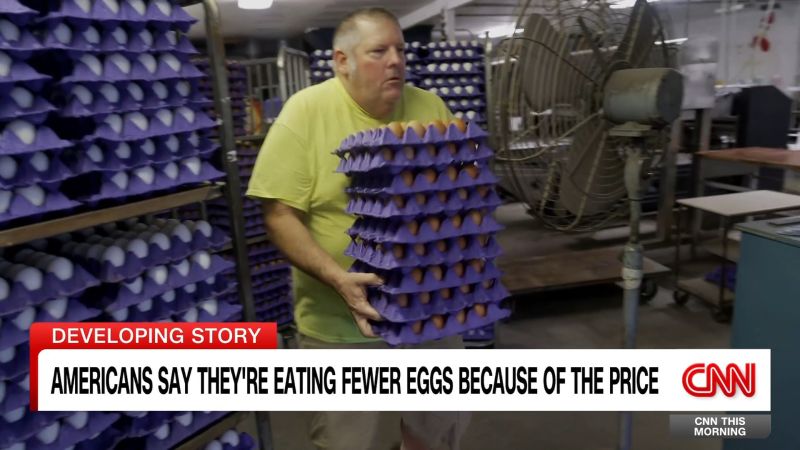USDA Announces $1 Billion Plan to Address Bird Flu Crisis Amidskyrocketing Egg Prices
The USDA has rolled out a plan to combat rising egg prices linked to a bird flu outbreak, as costs reach record highs for consumers.
Subscribe to unlock this story
We really don't like cutting you off, but you've reached your monthly limit. At just $5/month, subscriptions are how we keep this project going. Start your free 7-day trial today!
Get StartedHave an account? Sign in
Overview
As the bird flu outbreak continues, egg prices have soared to record highs, averaging $4.95 per dozen. This week, the USDA unveiled a $1 billion strategy to address the crisis, allocating funds for bio-safety measures and egg layer replacement. January saw a 15% price surge, with shelves emptied as consumers reacted to fears of shortages. While egg producers attribute the price spike to avian flu, critics—led by advocacy groups and some lawmakers—are demanding investigations into monopolistic practices in the industry. Reports also indicate an increase in egg smuggling attempts from Mexico, highlighting consumer desperation amid soaring prices.
Report issue

Read both sides in 5 minutes each day
Analysis
- Eggs have become the grocery staple that Americans can't stop talking about: whether its fears of widespread bird flu getting worse, or the drastic increase in the cost of eggs as a result of so many chickens dying from illness or being culled because of the outbreak.
- In its plan, the USDA said it would spend up to half a billion dollars boosting bio-safety precautions at egg farms. Another $400 million will go to speed the replacement of lost birds, although it can take six months to a year to raise a productive laying hen.
- Despite the challenges, consumers are adapting to higher prices by seeking alternative egg-related products, indicating resilience in holiday traditions despite rising costs.
Articles (6)
Center (3)
FAQ
The plan includes $500 million for biosecurity measures, $400 million in financial relief for farmers, $100 million for vaccine research, and efforts to reduce regulatory burdens and explore import options.
Egg prices have soared to record highs, averaging $4.95 per dozen, with a 15% price surge in January due to the outbreak and supply concerns.
US poultry producers have resisted vaccinating their flocks because many countries won't accept vaccinated birds, impacting U.S. exports.
The USDA is exploring temporary import options to supplement domestic egg supply and reduce consumer costs, though smuggling remains a separate issue.
History
- 8M

 3 articles
3 articles




